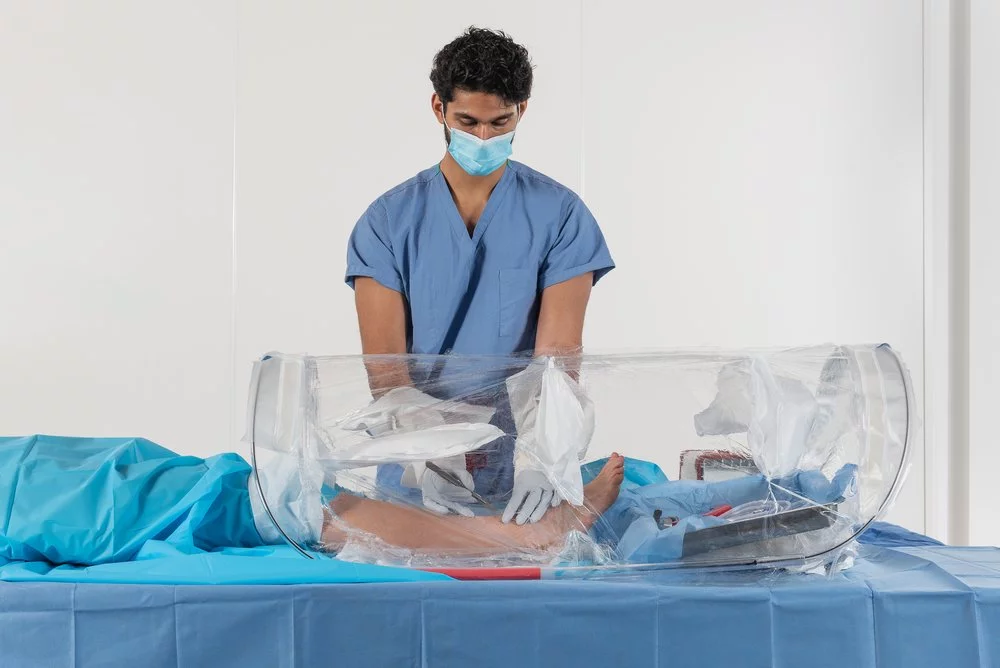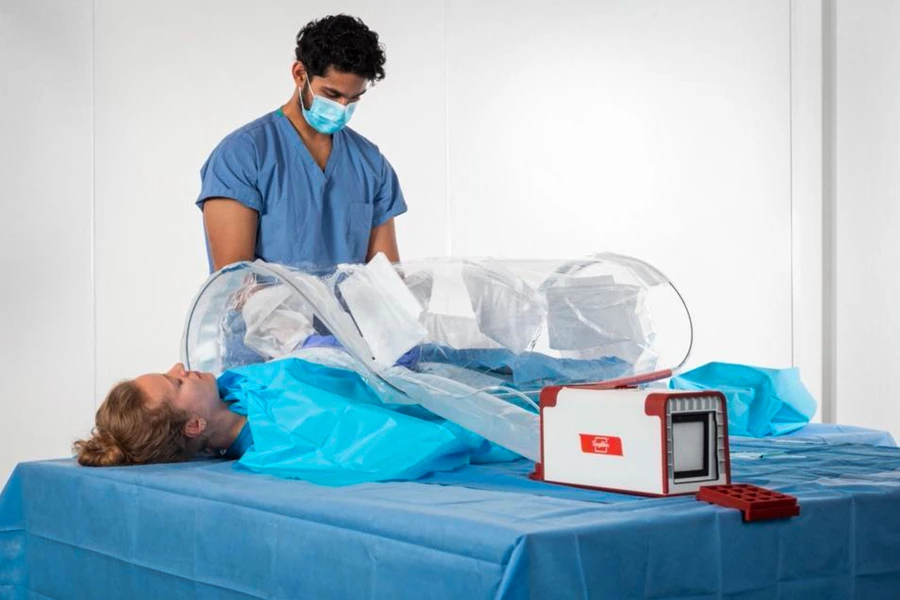Whether it's an impoverished nation, a battlefield or a disaster site, there are places where doctors have to perform surgery outside of a sterile operating room. That's where the SurgiField system comes in, as it's basically a miniature pop-up O.R.
Manufactured by MIT spinoff company SurgiBox, the SurgiField setup consists of three parts: a sealed single-use clear plastic SurgiBubble, an electric-air-pump-equipped Smart Control Module (SCM), and a rechargeable lithium-ion battery. All three can reportedly be carried in a single backpack, and put together in just a few minutes.
When the system is in use, the pre-sterilized SurgiBubble gets placed over the body area in question. Its bottom edges are sealed to the patient's skin, and it's held in its quonset-like shape by an included collapsible frame. The attached SCM maintains air flow inside the bubble via a hose connecting the two modules – the air is purified by the SCM's HEPA filter.

Once it's time to operate, the surgeon reaches into the bubble via two inward-facing armholes. They then simply watch what they're doing by looking through the clear plastic. Once the procedure has been completed, the SurgiBubble gets removed and discarded, and the rest of the system gets packed back up again.
As part of an ongoing aid program, 50 SurgiField systems were donated to Ukraine last month. MIT states that after the initial donation, the Ukraine Operation Command South reported that the system had already saved 31 lives.

Plans call for the first full production run to go to Doctors Without Borders. Down the road, it's even possible that the technology could enter non-emergency use, expanding the locations where routine operations can be performed.
"We think SurgiBox could be used to lower health care costs and also give doctors and patients more flexibility," said Mike Teodorescu, who founded the company along with Debbie Teodorescu. "There’s a whole set of costs associated with cleaning the operating room, getting it ready for patients, and getting the patient prepped for the operating room. Having some of that at a patient’s bedside would be hugely beneficial."




